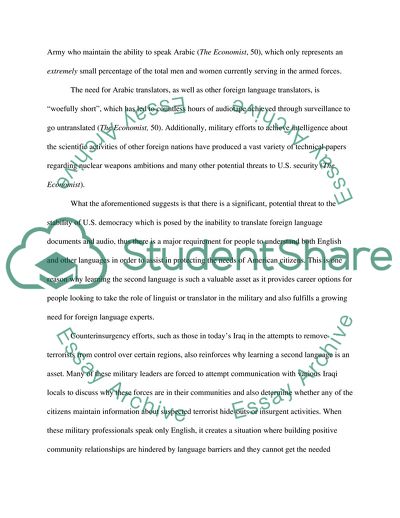Cite this document
(Learning a Foreign Language is an Asset in the Military Term Paper, n.d.)
Learning a Foreign Language is an Asset in the Military Term Paper. https://studentshare.org/military/1721712-learning-a-foreign-language-is-a-asset-in-the-military
Learning a Foreign Language is an Asset in the Military Term Paper. https://studentshare.org/military/1721712-learning-a-foreign-language-is-a-asset-in-the-military
(Learning a Foreign Language Is an Asset in the Military Term Paper)
Learning a Foreign Language Is an Asset in the Military Term Paper. https://studentshare.org/military/1721712-learning-a-foreign-language-is-a-asset-in-the-military.
Learning a Foreign Language Is an Asset in the Military Term Paper. https://studentshare.org/military/1721712-learning-a-foreign-language-is-a-asset-in-the-military.
“Learning a Foreign Language Is an Asset in the Military Term Paper”. https://studentshare.org/military/1721712-learning-a-foreign-language-is-a-asset-in-the-military.


